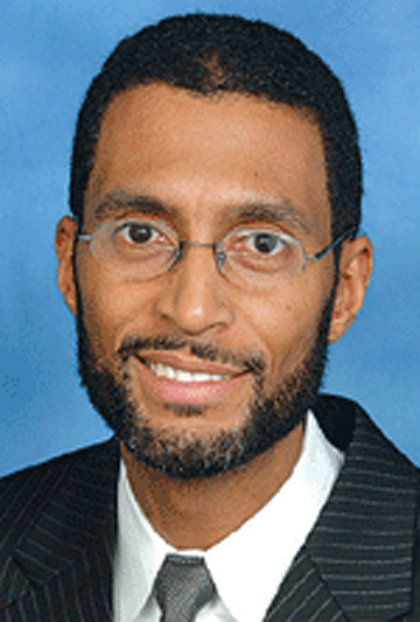
LOUISVILLE, Ky. (BP)–Last week, a non-white man, Barack Hussein Obama, was inaugurated as the 44th president of the United States. To avoid all the ethnic terminology wrangling, “non-white man” makes the point.
This is high drama in American history. Why he won is, and will be, debated among the politicos — the economy, the war, “change,” etc. However, the fact is that the world was watching when the son of an African and a white woman swore to uphold the United States Constitution — the same constitution that originally considered Africans to be less than fully human. He even took the oath of office using the same Bible as Abraham Lincoln, signer of the Emancipation Proclamation. Anyone who cannot see the high drama is blind.
While racism still is a reality in too many sectors of American life, Obama’s election certainly represents a symbolic rejection of an evil and dark part of America’s history.
Drama notwithstanding, this has been an interesting presidential election cycle for me. My thoughts and feelings have been pulled in different directions, to say the least. I am willing to be corrected, but I do not believe the last year in American politics has been as distressing, conflicting and exciting for anyone like it has been for a follower of Jesus Christ who is black and believes in the authority of the Bible.
I have been both happy and disappointed with some citizens of my state of Kentucky, with some of my fellow Kentucky Baptists (both black and white), and with some supposedly prominent Christian spokesmen.
I have heard some white Kentuckians unashamedly say on radio or television that they would never have voted for Obama solely because he was black. Fortunately, I also heard other white Kentuckians rebuke such prejudice.
I am disappointed that some Baptists act and talk as if the Republican Party is God’s party, and likewise, some Baptists act and talk as if the Democratic Party is God’s party. He belongs to neither.
I have seen so-called leading Christian voices flip-flop when it was politically expedient. I have seen double standards applied when “evangelicals” critique the theological and exegetical errors of politicians. I have even seen Christians try to determine which candidate was a “better Christian.” This election cycle taught me much more about white and black Christians than it did about Barack Obama or John McCain.
Probably most troubling, I have seen Christians question the eternal standing of other Christians in the Kingdom of God based on whether they adopt certain political philosophies and methodologies in the kingdom of man. I have bitten my tongue many times when I have heard the proverbial, “I don’t see how a Christian could …” (do, act or think other than the way I do).
Often, the political disagreement among Christians does not reflect exegetical disagreement, but rather differences of political emphasis, methodology, priority and experience — especially experience. If a person disobeys a command of God, they have sinned. If they disagree with your political methods or choices, so what? Are you infallible?
I have observed some of the most arrogant Christians on both sides of the aisles during this election cycle. I gladly chose years ago to be an “independent” after working, professionally, on both sides of the aisle. It really is entertaining to see some Christians try to fit their beliefs into their political-party loyalties. Long ago, Frederick Douglass noted the difference between the “Christianity of Christ” and the “Christianity of this land.” During this election cycle, I have seen the Christianity of Christ, the so-called Christianity of the Democrats and the so-called Christianity of the Republicans.
I certainly pray that Southern Baptists and other Christians will remember that no matter who sits in the White House, we still are an “alien” people of God traveling through a “barren land” (at least that’s what Bible folks believe). Our main focus is still Southern Baptists connecting people to Jesus Christ.
President Obama (like any politician) is a mixed bag. No candidate runs to advance the Kingdom of God. Therefore, every politician can make Christians happy and sad, at the same time. I feel good that he has been married to one woman and prioritizes his kids. That’s a good model for Americans, especially young black men. I feel good that Michelle Obama cherishes the joy of motherhood. That will be especially good for America with our overabundance of dysfunctional families and feminist assaults on dedicated mothers.
I feel bad (more than bad, actually) that he does not think abortion is the murder of unborn babies. Christians must voice strong dissent during the next four years to pro-abortion policies and judicial appointments. Although he does not support “same-sex marriage,” I am disappointed that homosexuality is not considered a sin to President Obama, and that he chooses to mock the Old Testament and Paul’s teachings in the New Testament. That being said, I would have had the same mixed-bag reaction if John McCain or Hillary Clinton had won the election.
The election of Barack Obama leaves me with mixed feelings. However, the disjointed political engagement of Christians makes me feel bad. It is so hard to find the biblical balance of being “in this world, but not of this world.” Wasn’t it embarrassing to have so-called Christians predicting the end of the world and calling various candidates “the anti-Christ?” Can’t you tell when Christians are “overinvested” in the political process? Do we still believe that the weapons of our warfare “are not carnal?”
When I saw the first black man assume the presidency of the United States of America, I was inspired about America’s story. Much has happened in the life of this young nation. However, when I looked around at so-called leading Christian voices during this last election cycle, there was very little inspiration — mostly concern.
–30–
Kevin Smith is pastor of Watson Memorial Baptist Church in Louisville and assistant professor of church history at Southern Baptist Theological Seminary.

















